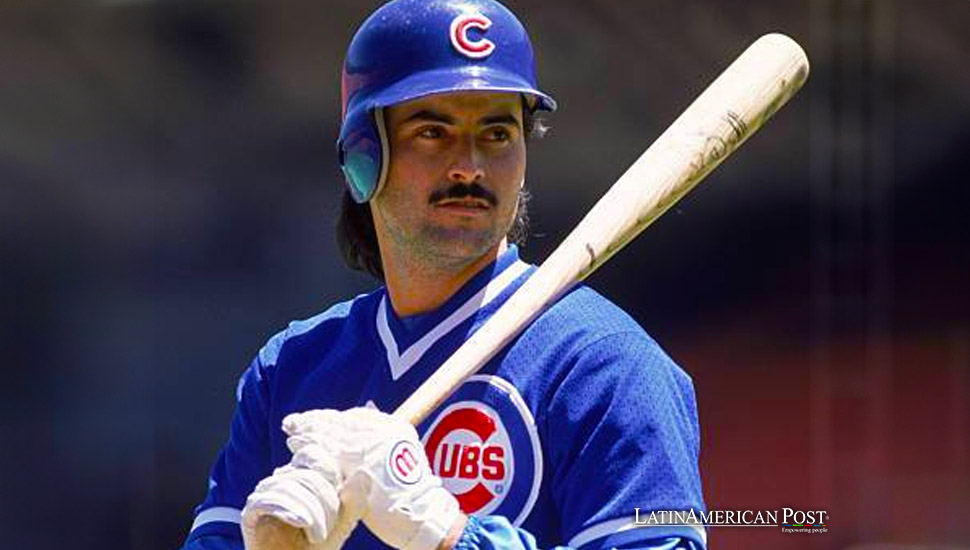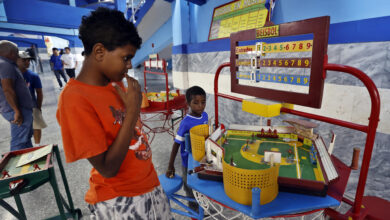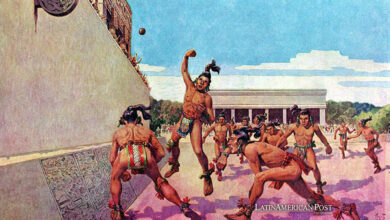Remembering the Scapegoating of Baseball’s Rafael Palmeiro as a Hispanic Foreigner

In the aftermath of President George W. Bush’s 2004 State of the Union address, Rafael Palmeiro became the scapegoat for baseball’s steroid scandal. This analysis explores how his treatment as a Cuban-American reflects broader fears and divisions in post-9/11 America, especially when compared to how American players facing similar suspicions were treated.
When President George W. Bush used his 2004 State of the Union address to condemn the use of performance-enhancing drugs in professional sports, many were surprised by the choice to focus on this issue amidst the ongoing “war on terror” and a struggling economy. However, Bush’s focus on sports, particularly baseball, can be understood as part of a larger narrative aimed at purifying and protecting the national body from foreign threats. Baseball, long celebrated as America’s pastime, became a symbolic battleground where the purity of the nation was seen as being at stake.
Rafael Palmeiro, a Cuban-American baseball player, quickly became a central figure in this narrative. The rhetoric surrounding his suspension for steroid use extended beyond the issue of performance-enhancing drugs and tapped into broader anxieties about foreignness and national identity. By examining Palmeiro’s case, we can better understand how post-9/11 America used sport to project its fears and insecurities, particularly toward those perceived as “other.” His treatment, when compared to American players facing similar suspicions, highlights the racial and ethnic biases that underpinned the entire steroid scandal.
The Myth of Baseball as a Pure American Game
Baseball has always held a special place in American culture, often described as the sport that best represents the nation’s values and character. Its history is nostalgic, with images of agricultural fields, father-son games of catch, and the iconic sound of a bat striking a ball, evoking a sense of purity and innocence. However, this idealized vision of baseball has always been at odds with the reality of the sport’s evolution, particularly in its struggles with diversity and inclusion.
From its early days, baseball was dominated by White, Protestant men who viewed the sport as a means of reinforcing social hierarchies. The inclusion of working-class players, immigrants, and later, African Americans and Latinos was met with resistance, as these groups were seen as potential contaminants to the game’s purity. Despite this, baseball became a melting pot, with players from various ethnic backgrounds contributing to its growth and success. However, the expectation was always that these players would assimilate into the existing culture, leaving behind their identities and conforming to the norms established by the sport’s original gatekeepers.
In this context, the use of steroids in baseball was not just a violation of the rules but a perceived threat to the purity of the sport and, by extension, the nation itself. The rhetoric surrounding the steroid scandal, particularly in the case of Rafael Palmeiro, reflected a deep-seated fear of contamination—both physical and cultural. This fear was exacerbated by the fact that Palmeiro was a Cuban-American immigrant who could be easily positioned as an outsider despite his long-standing contributions to baseball.
The Foreigner in the American Game
Rafael Palmeiro’s career in Major League Baseball was marked by impressive achievements, including over 3,000 hits and 500 home runs, milestones that should have secured his place in the Hall of Fame. However, Palmeiro’s legacy was forever tarnished when he tested positive for the steroid stanozolol in 2005, shortly after testifying before Congress that he had never used performance-enhancing drugs. The fallout was immediate and severe, with Palmeiro quickly becoming the face of baseball’s steroid scandal.
Palmeiro’s fall from grace was not just about the drugs; it was also about who he was and where he came from. Born in Havana, Cuba, and raised in Miami, Palmeiro symbolized the American dream—a foreigner who had made it to the top of America’s most beloved sport. Yet, when he was caught cheating, his foreignness became a focal point in the narrative that sought to cleanse baseball of its impurities.
In the rhetoric of post-9/11 America, where foreignness was often equated with danger and contamination, Palmeiro’s Cuban heritage made him an easy target for scapegoating. As Kenneth Burke’s scapegoating theory suggests, societies usually project their guilt and anxieties onto a symbolic figure, purging themselves of sin through the ritualistic “sacrifice” of this individual. In this case, Palmeiro became the sacrificial lamb, his Hispanic identity amplifying his role as the “other” who needed to be cast out to preserve the purity of the American game.
This treatment becomes even more glaring when contrasted with how American players facing similar suspicions were treated. For instance, Mark McGwire and Roger Clemens, both of whom were also embroiled in steroid allegations, were not subjected to the same level of public vilification. McGwire, famously implicated in using androstenedione during his 1998 home run chase, received relatively soft treatment from the media and fans. Clemens, despite his inclusion in the Mitchell Report and accusations of steroid use, managed to maintain a significant degree of public support, with many people giving him the benefit of the doubt.
The Implications of Scapegoating in Post-9/11 America
The scapegoating of Rafael Palmeiro was not an isolated incident but part of a broader pattern of exclusion and vilification that emerged in the wake of 9/11. As the nation grappled with the trauma of the attacks, there was a growing tendency to view anyone who did not fit the idealized image of an American as a potential threat. This was evident in the treatment of immigrants, particularly those from Latin America and the Middle East, who were increasingly subjected to surveillance, discrimination, and, in some cases, deportation.
The steroid scandal in baseball provided a convenient platform for these anxieties to be projected onto a public figure. Palmeiro’s case, in particular, resonated because it tapped into fears about the integrity of America’s institutions and the idea that the nation was being undermined from within by foreign elements. By punishing Palmeiro, baseball and the country could symbolically rid themselves of the perceived contamination and reaffirm their commitment to purity and American values.
However, this focus on individual scapegoats, whether in sports or broader society, often distracts from the systemic issues underlying the problems being addressed. In the case of baseball, the steroid scandal was not just about a few players cheating; it was about a culture that had allowed and, in some cases, encouraged performance-enhancing drugs as a means of achieving success. Similarly, in the post-9/11 context, the scapegoating of immigrants and foreigners obscured the more complex and nuanced causes of the nation’s insecurities and fears.
The contrast between how Palmeiro was treated and how American players like McGwire and Clemens were treated highlights the racial and ethnic biases that permeated the steroid scandal. Despite being implicated in steroid use, McGwire remained a beloved figure for many fans, mainly due to his role in the 1998 home run race. Even after being named in the Mitchell Report, Clemens retained a significant level of support, with many people eager to defend his legacy. In both cases, their status as American-born athletes shielded them from the level of scrutiny and condemnation that Palmeiro faced.
The Scapegoating of Rafael Palmeiro and its Legacy
Forty years later, the scapegoating of Rafael Palmeiro stands as a poignant reminder of how easily fear and prejudice can be projected onto individuals, particularly those who are perceived as outsiders. The decision to target Palmeiro, a Hispanic foreigner, was not just about his use of steroids; it was about a broader narrative of purity and exclusion that permeated American society in the years following 9/11.
The legacy of Palmeiro’s scapegoating extends beyond the world of baseball. It is a cautionary tale about the dangers of allowing fear to dictate public discourse and policy. When the nation was struggling to redefine its identity in the face of new threats, Palmeiro became an easy target, a symbol of everything that was perceived to be wrong with the country.
Yet, Palmeiro’s scapegoating also raises important questions about who gets to define what it means to be American and who is allowed to participate in the national narrative. As the nation continues to grapple with issues of diversity and inclusion, it is crucial to remember past lessons and strive for a more just and equitable society where individuals are not unfairly targeted because of their race, ethnicity, or place of origin.
Also read: Cuban Canseco Returns with Tears, Triumph, and the Legacy of a Controversial Career
In the end, Rafael Palmeiro’s story is not just about a baseball player who made a mistake; it is about a nation that, in its quest for purity and security, was willing to sacrifice one of its own. The challenge moving forward is to ensure that such scapegoating does not happen again and that the values of fairness and justice are upheld for all, regardless of their background. The contrasting treatment of American players who faced similar suspicions but were not subjected to the same level of scrutiny underscores the racial and ethnic biases that still need to be addressed in both sport and society.





